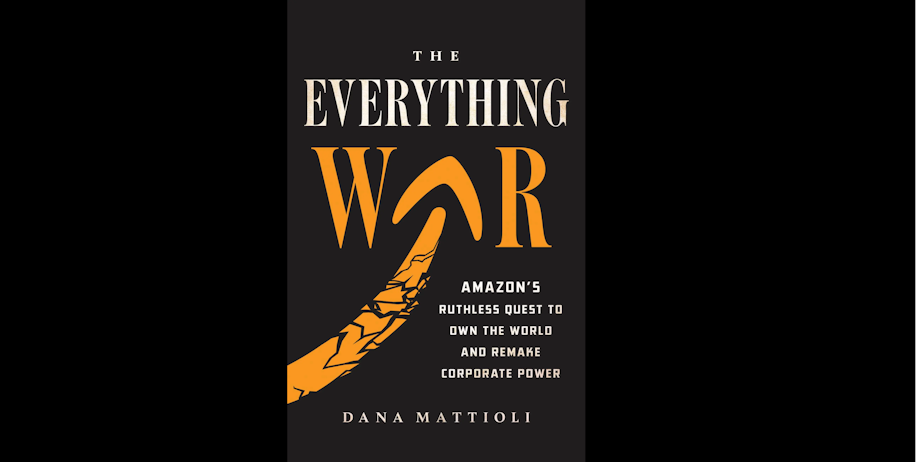Amazon's rise to the top explained in 'The Everything War'

As Amazon faces a Federal Trade Commission lawsuit, a new book is out with a fresh look at how it went from a Bellevue garage to a sprawling empire of online retail, cloud computing, and logistics — and a political lightning rod.
Dana Mattioli, an award-winning journalist who covered Amazon for The Wall Street Journal, said that rise can be attributed to hyper aggressive business practices and culture. It's those business practices and cultural expectations, she said, that still drive the company today. And they may be, in part, what led to an FTC lawsuit. Last week, the FTC filed a motion in that case, accusing Amazon of destroying years' worth of relevant data.
RELATED: U.S. sues Amazon in a monopoly case that could be existential for the retail giant
"This is one of the most secretive companies I've ever come across in 18 years as a business reporter," Mattioli said. "It's purposefully secretive and Byzantine to keep a lot of their business practices out of the spotlight that would get scrutiny."
Mattioli explored that culture of secrecy in her new book "The Everything War: Amazon’s Ruthless Quest to Own the World and Remake Corporate Power."
Sponsored
Mattioli acquired internal documents from the company, which she said show that the company has been raising fees on third-party sellers, thus increasing their own profit; it's practices with third-party sellers are at the core of the FTC's lawsuit. A decade ago, on average, Amazon took 19% of every sale by third-party sellers. Now, Mattioli said, that percentage has increased to 50%.
RELATED: Why hasn't Washington state joined the federal antitrust case against Amazon?
And how did the company get here?
"I think Jeff Bezos, his personality and mindset, is directly correlated into the culture at the company," Mattioli said. "And I found that the culture of the company is where more of the shocking behaviors and maybe anti-competitive behaviors come into play."
Those behaviors include stack-ranking employees, so that they compete against each other to keep their jobs. Mattioli said Bezos told early employees he wanted them to have a killer instinct.
Sponsored
RELATED: Microsoft’s anti-trust lessons for Amazon
"I think it's driven by this like 'Hunger Games' sort of environment where employees can be tempted to do things that they're not supposed to be doing, that might be anti-competitive, that might get them into the hot seat, out of self-preservation, to keep their jobs or get ahead," she said.
You can listen to Soundside's entire conversation with Dana Mattioli by clicking the "play" button above.





